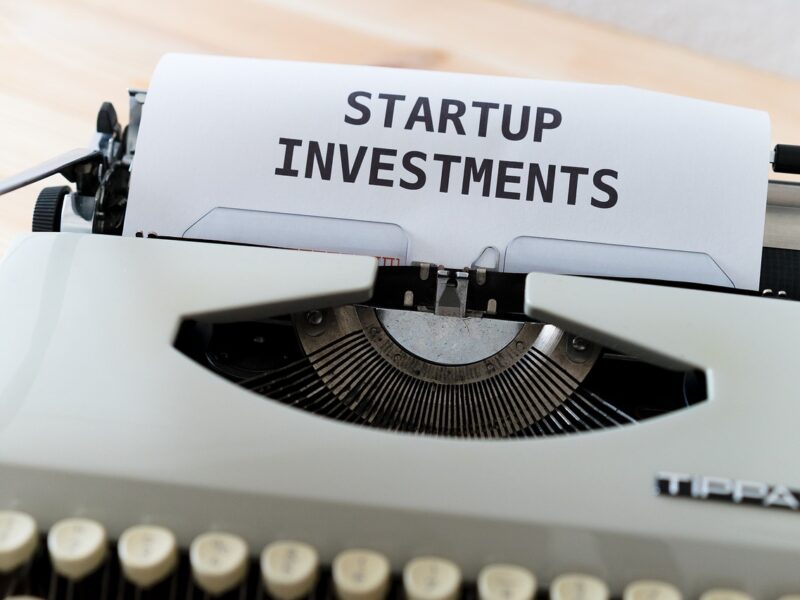With the economy constantly changing and the cost of starting and running a business becoming increasingly higher, the need for external funding cannot be overstated. With Over $50k in grants, the possibility of individuals and business to create something lasting becomes more apparent.
Whether you are an entrepreneur looking to start a new business, a small business owner aiming to scale, or an individual working on an innovative project, grants can provide the financial boost needed to turn ideas into reality.
The good thing about being able to secure a grant is that unlike loans, they do not need to be repaid after a while. This gives the benefactor lots of opportunity to build their dream business without the pressure of financial burden hanging on their necks. However, these grants which are over $50k can be quite competitive and difficult to get.
What Are Grants and Why Do They Matter?
Grants are financial awards that are given by government bodies, private corporations, and foundations. They are offered to support specific causes, business innovations, research, and more. The most significant advantage of grants is that, unlike loans, they do not need to be paid back. However, they often come with specific requirements regarding how the funds are used.
Additionally, they are typically highly competitive, so meeting the application requirements is crucial for success. In the USA, many grants exceed $50,000, making them a valuable resource for businesses aiming to grow or individuals looking to innovate or invest in impactful projects. The key is identifying which grants are most relevant to your needs and how to effectively apply for them.
Types of Grants Available
There are many different types of grants available, and they can generally be divided into two main categories:
1. Government Grants
These are grants funded by federal, state, or local governments to support innovation, entrepreneurship, education, and social programs. Government grants are often competitive and require thorough documentation.
2. Private Foundation Grants
Many large corporations and non-profit organizations have grant programs aimed at supporting small businesses, research, arts, education, and environmental initiatives. These grants are typically more focused on specific causes and may be less competitive than government grants.
3. Corporate Grants
Corporations often fund projects that align with their business goals or social responsibility missions. Corporate grants can provide a considerable amount of funding, particularly for businesses or non-profits working in areas such as sustainability, innovation, or community development.
Top Over $50K Grants for Individuals and Businesses
Several grants in the USA and globally offer funding opportunities over $50,000 for individuals and businesses. Below is a list of some prominent grants in this category.
Small Business Innovation Research (SBIR) and Small Business Technology Transfer (STTR) Programs
The SBIR/STTR programs are U.S. government initiatives designed to support small businesses engaged in federal research and development (R&D) with the potential for commercialization. These grants often exceed $50,000, with Phase I grants starting around this figure and Phase II awards going much higher.
Eligibility and funding amount: Small businesses in the U.S. working on innovative research are qualified to apply and grants start at $50,000 and can reach up to $1 million or more, depending on the phase.
How to Apply: Applications are submitted through the participating federal agencies, such as NASA, the Department of Energy, and the National Institutes of Health (NIH).
National Institutes of Health (NIH) Grants
The NIH is one of the largest public funders of biomedical research globally, offering numerous grants that exceed $50,000. These grants support research in medical science, public health, and innovation.
Eligibility and funding amount: Researchers, universities, and small businesses involved in health-related research are encouraged to apply for this opportunity. NIH grants can exceed $500,000, depending on the scope and scale of the research.
How to Apply: Researchers submit applications through Grants.gov, with stringent guidelines on project proposals.
National Science Foundation (NSF) Grants
The NSF provides grants for research and development in science, technology, engineering, and mathematics (STEM) fields. These grants are often awarded to individuals and small businesses working on cutting-edge projects.
Eligibility and funding amount: Individuals, universities, and small businesses in the STEM fields are all eligible to apply and funding grants can exceed $50,000 and often go well beyond that for larger-scale projects.
How to Apply: Applications must be submitted through the NSF’s FastLane portal.
Amber Grant for Women
The Amber Grant was established to help women entrepreneurs fulfill their business goals. The grant awards a monthly prize and culminates in an annual grant that exceeds $50,000.
Eligibility and funding amount: Women-owned businesses in the U.S. and Canada are qualified to apply for the grant and monthly grants of $10,000 are obtainable, with an annual $25,000 award for one of the monthly winners, resulting in over $50,000 in total.
How to Apply: Simple online application on the Amber Grant website, requiring a small application fee.
Economic Development Administration (EDA) Grants
The EDA offers grants to stimulate economic development by fostering entrepreneurship and innovation. These grants often exceed $50,000 and can be applied to a variety of projects aimed at job creation and business growth.
To qualify for the EDA grants, you must be a U.S. business and non-profit working on economic development projects. Funding amount starts at $50,000 and can exceed $1 million for large-scale projects.
How to Apply: Applications are submitted through the EDA website, with proposals focusing on economic impact.
Coca-Cola Foundation Grants
The Coca-Cola Foundation provides grants for projects related to community development, sustainability, and women empowerment. For businesses and individuals looking to create an environmental or social impact, this grant offers substantial funding opportunities.
Eligibility and funding amount: Non-profits, businesses, and organizations focused on social or environmental causes are considered top priority. Grants typically exceed $50,000 and can go into the hundreds of thousands of dollars.
How to Apply: Applications can be submitted online through the Coca-Cola Foundation’s website.
Google for Startups Black Founders Fund
This initiative by Google aims to help Black founders by offering financial support for startups. The grants come with no equity requirements, making it an attractive funding opportunity for those looking to scale their business.
Eligibility and funding amount: Black entrepreneurs and startups in the U.S are the target audience. Grants start at $50,000, with additional resources like Google Cloud credits and business support.
How to Apply: Applications are accepted through Google for Startups, with preference given to founders working on tech solutions.
PepsiCo Foundation Community Impact Grants
PepsiCo Foundation provides grants to small businesses and non-profits that make a positive impact on their communities, especially focusing on food security, nutrition, and sustainability.
Eligibility and funding amount: Non-profits and small businesses qualify for this funding. Grants can exceed $50,000, depending on the scope of the project.
How to Apply: Applications are submitted via the PepsiCo Foundation’s website, requiring detailed proposals about the community impact.
How to Apply for Grants Over $50K
Applying for large grants, especially those over $50,000, requires careful planning and attention to detail. Below are steps to guide you through the process:
- Identify the Right Grant: Not all grants are created equal, and applying to the right one is key. Review the eligibility requirements, project goals, and focus areas of the grant to ensure a strong match with your business or project.
- Prepare a Detailed Proposal: A compelling proposal is essential to securing grant funding. Your proposal should outline the problem your project or business aims to solve, explain how your project or business addresses the problem, include a detailed budget explaining how the grant funds will be used and highlight the broader impact of your project, whether it’s job creation, social impact, or innovation.
- Gather Supporting Documents: Most grant applications require supporting documents, such as business plans, financial statements, and references. Ensure that all documents are complete and meet the requirements outlined by the grant issuer.
- Submit on Time: Grant opportunities are often competitive, with strict deadlines. Late submissions are typically not accepted, so it’s essential to plan ahead and submit all materials before the deadline.
- Follow Up: After submitting your application, follow up with the grant provider if necessary. Some organizations may ask for additional information or clarification during the review process.






